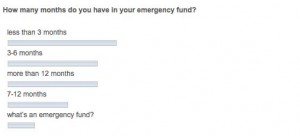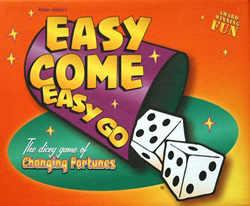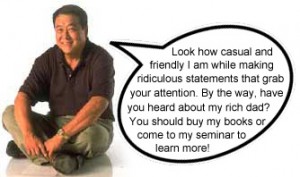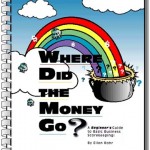 I think, by now, we all agree:
I think, by now, we all agree:
Credit Cards = BAD
I mean, that’s pretty much Personal Finance Kindergarten, right?
Why pay 19%+ interest for something that just goes down in value (like that 3D TV)?
But, why do I pay all my bills – both work and personal – by credit card.
I’m sure the answer’s pretty obvious to all and sundry: it’s for the points, man!
Yes, even millionaires like to get free stuff …
…. and, Sugardaddy outlines on NetworthIQ exactly how he does it:
1) Assuming that you pay your bills on time, most of the time, put all routine expenses on your credit card…utilities, groceries, etc.
2) Set up an automatic bill payment plan from your checking account for the card online.
Result:
1) you get a 30-day free loan.
2) you get free credit card points that are worth real money.
3) you increase your credit score.
4) you consolidate all your bills in one payment
5) You will never have a late fee and the APR will never concern you.
6) You will always watch your checking account balance like a hawk as failure to have enough in the account IS NOT AN OPTION.I have done this for 10 years and it works like a charm…I get all my video games for “free” from Best Buy, and beat the banks at their own game.
Life does not get any better than that.
But, there’s always a catch in Life, Sugardaddy 😉
The one, here, is that the credit card companies HOPE that you forget to pay your bill on time, then you get to pay interest from the date of purchase.
[AJC: actually, they’ve already made their $$$$ from the Merchant Fee – believe me, I understand this side of the business VERY well – but, that 19% they get from you is just sweeeetttttt]
So, I add a few more steps to this otherwise inspired plan:
7 ) See 6)
8 ) See 6)
9 ) See 6)
10) See 6)
Point made?
Great, because I, too, have been doing this for years.
My assistant puts all ‘work’ expenses through my personal credit card (needless to say I have a LARGE credit limit), and my wife does the same with our home expenses.
Both ensure payment in full each and EVERY month.
Having done that, later this year I’m traveling ’round the world first class [AJC: I’m told that First Class on the new A380 entitles me to my own/private room on the ‘plane!] … fully ‘paid’ by points.
Sweet 🙂








